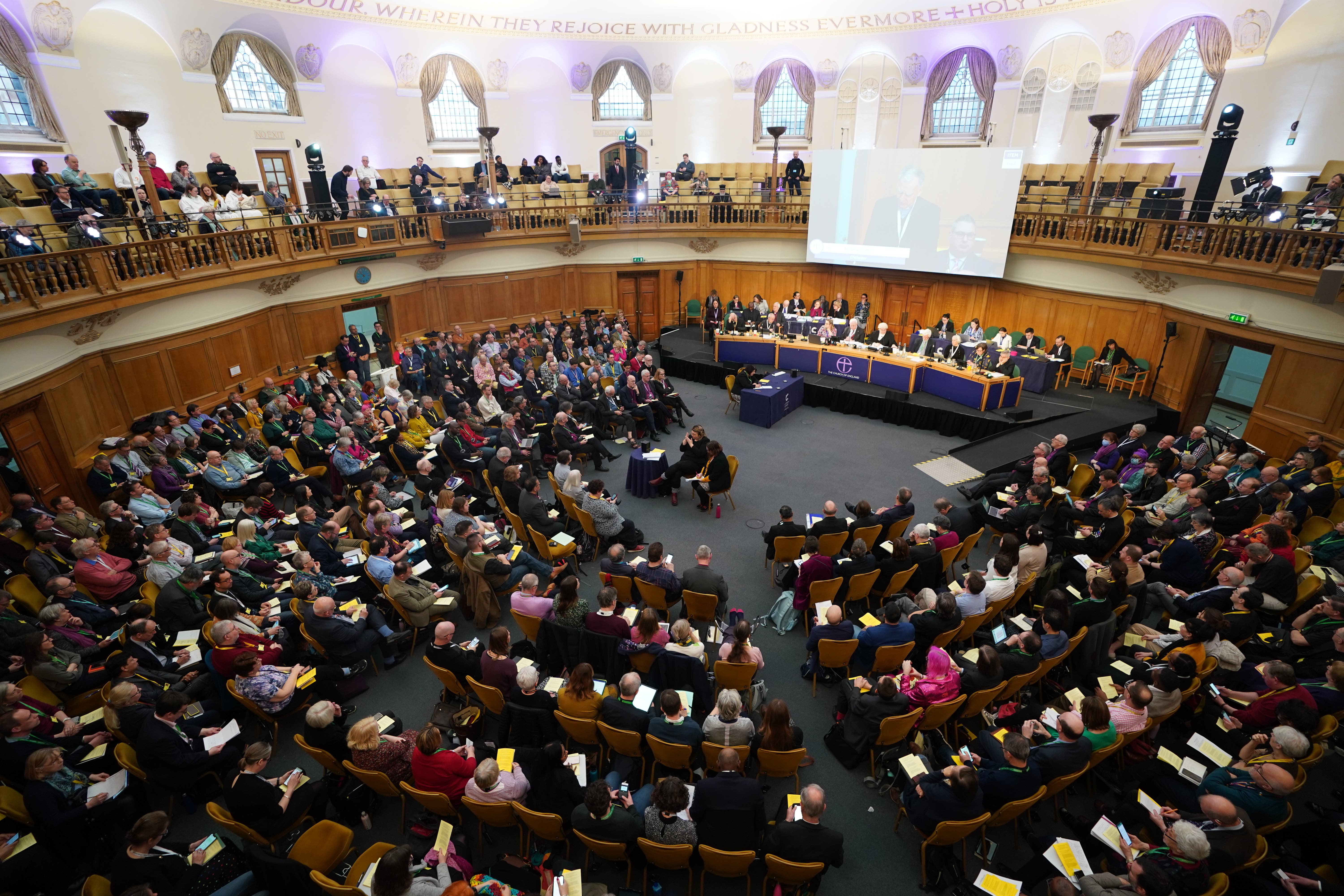Two new charities should oversee safeguarding in Church of England – report
The report, authored by Professor Alexis Jay, states that current safeguarding in the Church is ‘flawed’.

Two new independent charities should be set up to deliver and oversee safeguarding in the Church of England, a report has recommended.
The report, authored by Professor Alexis Jay, states that current safeguarding is “flawed” and “cannot be sufficiently improved” while it remains within Church oversight.
It recommends that an independent body should oversee the establishment of the charities, whose delivery and scrutiny of safeguarding should be funded by the Church.
The former chairwoman of the Independent Inquiry into Child Sexual Abuse concluded in her report that current Church safeguarding “falls below the standards expected and set in secular organisations”.
Church safeguarding currently falls below the standards of secular organisations, with inconsistent guidance, data collection, accountability, professional practice and scrutiny
Professor Jay wrote that the Church needs to “take action urgently to restore trust and confidence” in its safeguarding by victims, survivors, those wrongly accused and the general public.
Major concerns include the lack of a uniform complaints system, poor data collection and no independent system of scrutiny.
In the report, Professor Jay notes that safeguarding has, at times, been used to address matters of conduct that are “entirely unrelated” to a risk to children or vulnerable adults.
Described at its most extreme as the “weaponising of safeguarding”, this was seen as a pretext for removing people on the basis of moral judgments or because they were seen as a nuisance.
Examples of matters referred to safeguarding staff included parishioners, with no vulnerabilities, who were “having extra-marital affairs”, and a lay preacher who was “accused of praying too vehemently”.
Professor Jay wrote that the Church’s current system of operational safeguarding will not be compatible with best practices while its management and accountability remains within the 42 dioceses.
This is because many safeguarding professionals are managed and supervised by people lacking “knowledge or experience” of the subject such as bishops, clergy and church officers.
Safeguarding investigations, as reported from different parts of England, did not routinely include fact finding as a first step, nor details of allegations, provision of evidence, or clarity about an appeals process to the subject of the investigation, the report found.
It recommends the creation of two charities separate from the Church – one to deliver Church safeguarding and one to provide independent scrutiny of this safeguarding.
Professor Jay, who led the Independent Inquiry into Child Sexual Exploitation in Rotherham, said: “The purpose of my work was to focus on how to achieve a safeguarding body that was independent.
“This is the minimum that victims, survivors and those who are subject to allegations are entitled to expect.
“This report makes clear that, overall, Church safeguarding currently falls below the standards of secular organisations, with inconsistent guidance, data collection, accountability, professional practice and scrutiny.
“Further tinkering with existing structures would not be sufficient to make safeguarding in the Church professional, accountable and trusted by those who use its services.
“The only way in which all of these concerns could be addressed is by making the safeguarding of children and vulnerable adults truly independent of the Church through the establishment of two separate charities, one with operational responsibility for safeguarding and the other to provide scrutiny.”
We recognise her criticism of our safeguarding structures and processes and we welcome this scrutiny and challenge
In a statement, the Archbishop of Canterbury Justin Welby and the Archbishop of York Stephen Cottrell thanked Professor Jay for her “wisdom, expertise and meticulous proposals”.
They added: “We recognise her criticism of our safeguarding structures and processes and we welcome this scrutiny and challenge.
“For the sake of all those who come into contact with the Church, particularly victims and survivors, we welcome the plans that are in place to take forward this work as swiftly as possible to give everyone confidence and trust in our structures and processes.”
The report, which followed the dissolution of the Church’s Independent Safeguarding Board, will initially be considered and debated at General Synod on Saturday with a presentation from Professor Jay.
The Church of England’s lead safeguarding bishop Joanne Grenfell said the report contained “important recommendations”.
She added: “We are truly sorry when we have got things wrong and we must continue to learn about how to respond well to the needs of victims and survivors of abuse, as we work to create a healthy culture in every part of the Church of England.”
Professor Jay was appointed by the Archbishops of Canterbury and York in July 2023, on behalf of The Archbishops’ Council, to make recommendations for how Church safeguarding and its scrutiny could be made fully independent.
In 2015, Professor Jay joined the panel of the Independent Inquiry into Child Sexual Abuse, before being appointed as chairwoman of the inquiry by the then home secretary Amber Rudd in August 2016.
Bookmark popover
Removed from bookmarks